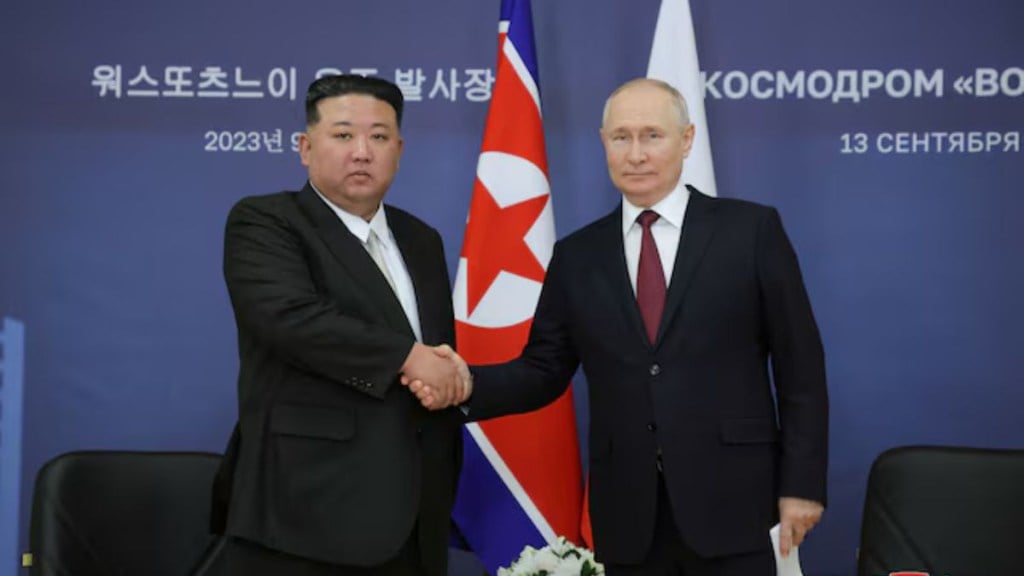Russian President Vladimir Putin has issued a stern warning to South Korea regarding the potential consequences of supplying lethal weapons to Ukraine. This comes following Putin’s visit to North Korea, where he solidified a strategic agreement with North Korean leader Kim Jong Un. The pact entails mutual defence support in the event of an attack on either country, signalling a significant shift in regional security dynamics.
During a one-day visit to Vietnam, Putin responded to concerns about the strategic agreement with North Korea, stating that South Korea need not worry unless it provides weapons to Ukraine. Putin emphasized that any such action from South Korea would be its fault and would lead to serious repercussions.
The new strategic alignment between Russia and North Korea has raised alarms in South Korea. Consequently, Seoul is reconsidering its stance on providing military aid to Ukraine. South Korea has consistently supported Ukraine during the ongoing war with Russia, offering financial and humanitarian assistance. In July 2023, South Korean President Yoon Suk-yeol visited Kiev and met with Ukrainian President Volodymyr Zelensky. Despite this support, South Korea had maintained a policy of noninvolvement in providing military assistance to countries at war.
However, the evolving geopolitical landscape, marked by the Russia-North Korea agreement, has prompted South Korea to reassess its policies. Rising tensions on the Korean Peninsula, particularly in the Demilitarized Zone (DMZ), underscore the gravity of the situation. The DMZ, a heavily fortified buffer zone between North and South Korea, has seen an increase in incidents of firing and infiltration in recent times.
In response to these tensions, South Korea has intensified its military exercises with the United States, showcasing a united front against potential threats. Recent firing incidents in the DMZ have further escalated the situation. On multiple occasions, North Korean soldiers have crossed into South Korean territory, prompting warning shots from the South Korean military. These incursions, whether accidental or deliberate, have heightened alertness and military readiness in South Korea.
The situation has been worsened by North Korea’s provocative actions, such as sending balloons filled with dirt across the border and engaging in construction activities near the DMZ, which are suspected to be preparations for potential military offensives. In retaliation, South Korea has resorted to psychological operations, including broadcasting propaganda speeches and K-pop songs into North Korea using loudspeakers, and releasing balloons carrying leaflets, USB sticks with South Korean pop culture content, and US dollar bills.
These developments suggest that the Korean Peninsula is teetering on the brink of conflict. The lack of response from North Korea to recent South Korean warning shots adds to the uncertainty. The aggressive posturing and defensive measures from both sides indicate a fragile peace that could easily be disrupted.
Putin’s visit to North Korea has undeniably amplified the tension in the region. The strategic agreement between Russia and North Korea has significant implications for South Korea’s security calculus. In light of this, South Korea’s consideration of providing weapons to Ukraine represents a critical juncture in its foreign policy. Putin’s warning serves as a stark reminder of the potential consequences of such a move.
As the situation evolves, the international community watches closely, aware that any escalation in the Korean Peninsula could have far-reaching consequences. The strategic alliance between Russia and North Korea not only challenges the stability in East Asia but also complicates the global response to the Ukraine conflict. South Korea now finds itself in a precarious position, balancing its support for Ukraine with the need to maintain stability on its own border.

